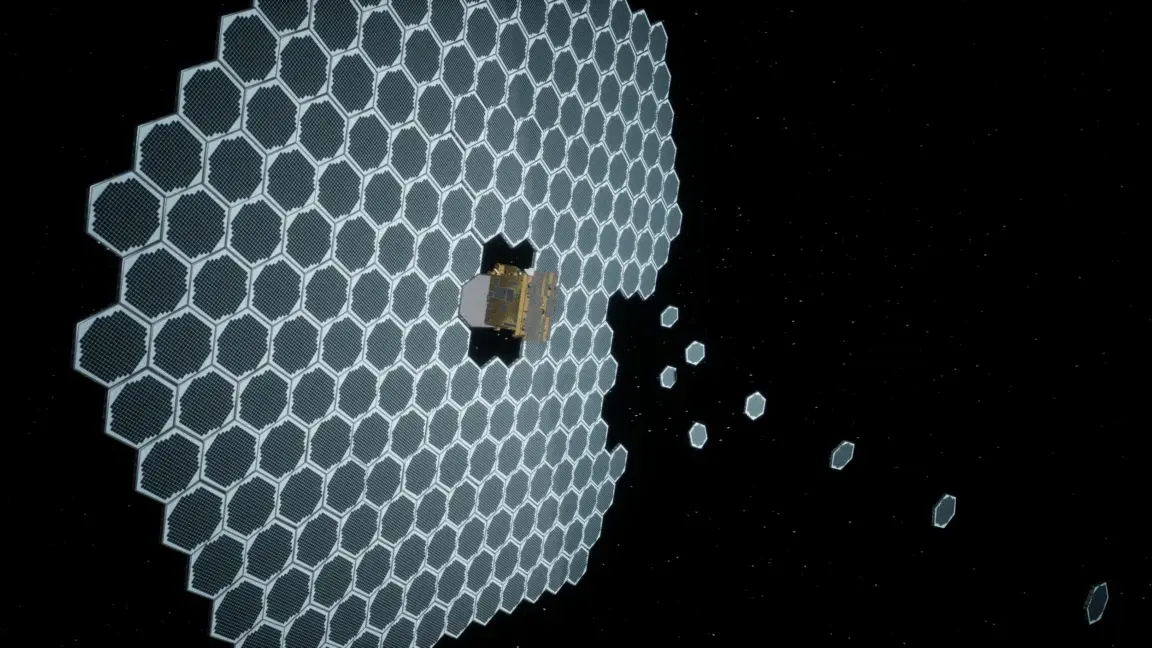The only thing better than grifting is grifting on an astronomical scale.
Isn’t it incredibly difficult to shed heat in space since the only real way to move heat is radiation?
In the (fiction) novel Artemis by Andy Weir, which takes place in a city on the moon, they have a heat management system that seemed pretty cool. They convert heat to light, and radiate the light out into space. Not sure how feasible/scalable that is, but I thought the concept was cool.
That’s already how they do it. They pass heat onto radiators which radiate away the excess heat in infrared. It should be noted however that this is far less efficient than it is in an atmosphere.
If they can turn it into light why not turn it into energy to be used?
If I had to guess, maybe they had a surplus of energy and needed some way to dissipate excess energy. I read the book years ago though, so I don’t really remember.
Doesn’t that already happen with infrared radiation?
I suppose so. Maybe the concept could work with other forms of electromagnetic radiation too, and visible light was just the one used in the book. Idk, I’m no physicist 🤷♂️
There are some various ways. Radiators can be large and thin, and as long as the heat-sensitive part of the thing is kept cool it doesn’t really matter how hot the rest of it gets.
Come on now, people can’t actually be humoring this fever dream, can they? It’s just so fucking stupid…
Why not on mars? It’s even farther away and too cold anyway.
News headline in the future: “Orbital Data Center Crashes Into Los Angeles in a Mass Casualty Event”
Me too. I’ll even make them full AI.
Please send me $2 billion by Tuesday. My salary as yetAnotherUser CEO & CTO is a modest 20 million/year. Results are expected to appear by 2030.
Hey Gemini, make me a business plan, a marketing site and some presentations with fancy graphs.
Hey hey, I’ll make them on Mars! Send the cash to me instead!
I’ll do it right here on earth for only 75% of the cost. Think of how much you’ll save versus mars.
But where’s the vision? Is it even AI managed?
Stare into my asshole to find out.
Getting rid of the heat is going to be an issue for that… along with the massive pollution from the many launches required to get this in orbit.
The heat will just dissipate in the air, and they can launch it at night when it’s colder. Science!
/s in case, there are a few mouth breathers out today
Oh! Oh! Attach it to a meteorite! Almost infinite heatsink in space!
They could build them so that they stay in perpetual dawn or dusk. One edge with the solar panels in the su, the other edge with the cooling fins in the night’s cool breeze.
Geostationary orbit is far higher than low earth orbit and I would assume following earths twilight zone would not be much better. I do not see why you would either, with reaction wheels you could orient the satellites towards the sun regardless of the relative position of the earth, with the caveat that earth may block the sun which is hard to avoid entirely anyways.
Also, there is not that much cool breeze in space, famously known for not having vast amounts of air (still have IR-radiation to help though).
Edit: Probably ate the onion, didn’t I?
Kessler syndrome goes brrrrrrrrrrrrrrrrrrrrrrrrrrrrrrrrrr
I’m pretty sure they’re aware of the need for radiators. They’ve probably designed satellites before.
Nobody thinks they’re incapable of working this out; we think theyre deliberately advertising something dumb that lay people won’t necessarily understand is dumb. Replying that they have smart engineers is stupid because no-one denied it - we just don’t think they used those engineers to come up with the idea.
yes but they’re not trying to dissipate megawatts usually
Again, I’m pretty sure they’re aware that you need bigger radiators when you’re using more energy. This is space engineering 101.
literal kilometers of panels and radiators. No. It won’t happen
If only they’d hired you, they would have known.
well any actual engineer who isn’t trying to sell them will readily tell you that a datacenter in space is a very bad idea.
They’d better not try to sell them to anyone who has access to an engineer, then. Just a single engineer will bring the whole scheme crashing down.
Edit: don’t feed the troll.
But he’s so hungry. :(
Free advice: The economics don’t work out.
We just need to invent space construction, cheap fusion power, autonomous robotics, improve AI and set up astroid mining first, then it’ll be a snap.
Gotta get the MIC on board if you want that sweet sweet imperial paper.
Honestly, i would count that as a win, since we have foresseable global ressource shortages anyway, but not large enough to get that started (more likely wars instead).
Honestly, it’s hard to figure out what the first step in that chain is. If you want to start up industry in space, great, there are lot of potential benefits to that. But where do you start?
Within the next 50 years I do expect a broad sector of space industry to emerge, but I really can’t predict what the first opportunities might be. Still, we can poke fun at it all we want right now, but I suspect a great many people will be working in space 50 years from now.
Mining raw resources that are more easily availabe on asteroids than on earth seems like the most likely candidate. There are metalic asteroids that have significant quantities of valuable metals like gold, titanium, iridium etc.
and figure out cooling without having to constantly be resupplying them with water, of course.
In before someone wants to reboot a server and the hypervisor is unresponsive.
Data centers in the ocean didn’t work out. This doesn’t seem smarter
Wasn’t the Mocrosoft test run very successful?
The Chinese have done it apparently.
I didn’t realize there was a paywall, I use the bypass paywalls clean extension.
Is there a userscript version of something like this? I rather have one userscript more than yet-another specialized addon.
Look here but it has support for far less sites.
Imagine getting sent up because a pos rj45 cable got hit by a micrometeorite
Because they swore the server was powered on…
Back when the capacitor plague hit I had to manage locating & replacing over 500 motherboards in the datacenter of my then-employer. Imagine if a hardware glitch like that happened in one of these.
I had some of these bad capacitors blow in my video card, back in the day. I was extremely proud of myself for managing to order some replacement capacitors and soldering them in myself.
The most impressive part might be that I ordered the right items. I knew nothing about electronics repair at the time, I just wanted to be able to play World of Warcraft again.
I think you have the start of a good plotline for a sf comedy.
Welp, that’s a fuckin stupid idea. Next!
Even if this was an economically sound proposal, the next X45 magnitude solar flare might be a nasty surprise for reliability metrics…
Edit: at some point, this would also likely contribute to Kessler Syndrome, but at least we’d have chat bots.
Yeah me too! Give me money.
Isn’t this how Skynet started?
No, it started when a scriptwriter came up with an idea for a movie that would sell a lot of tickets.










